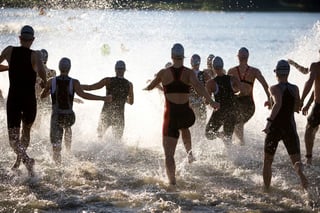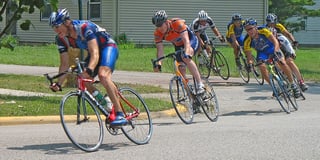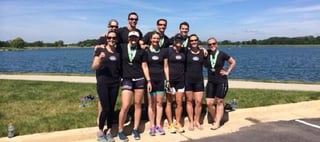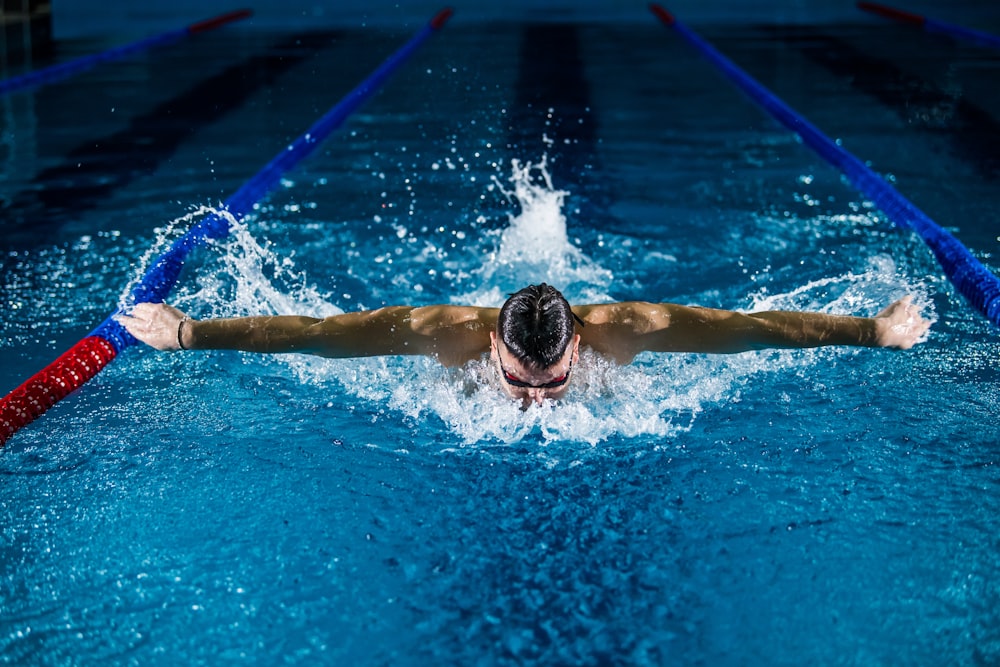Training for a triathlon can be daunting, but all it takes is commitment and time. And a little expert advice doesn’t hurt. Below are 7 key tips for starting your triathlon training for Chicago Athletic Clubs’ Triathlon Club Head Coach, Alex Card.
Fuel your training with great nutrition!
- When it comes to triathlon training, be ready to make a time commitment. Training for three different sports on top of weight training you can bet that you will be busy. Also, setting goals to challenge yourself is a good idea, but know your limits. In other words, you shouldn't make your first race an Ironman, work your way up to it. For your first season, I suggest participating in a sprint triathlon early on and then an Olympic triathlon later on. The sprint triathlon is to get a feeling for what the race will be like and practice your transitions. The Olympic will be the real goal.

- There is no such thing as being over prepared for your first triathlon. I would say 14-16 weeks should be plenty of time to prepare for your race. Be sure to get the guidance you need and fine tuning well before your race. Don't wait until the last month to fix your swim stroke, get the coaching you need ASAP.
- When planning out your training week, I would suggest at minimum one day for each leg of the race. Adding bricks (i.e. swimming and then running) to your training will add more intensity and flavor to your workouts.
- I believe an hour and a half per practice should suffice. Going from what was said earlier about time commitment, if you do the minimum suggested time that is 4.5 hours per week, I suggest adding 2 bricks and maybe weight training to add another 5 hours to your week.

- Triathlon training is important in order to prepare your body for the intensity that is this race. Each leg has dangers that shouldn't be taken lightly. The swim is an obvious danger as is anything that involves large bodies of water. The bike will will be on public roads at some venues so biking with traffic can be dangerous.The race starts in the morning so when you get to the running portion, the sun will be higher in the sky and heat can be an issue.In all events, preparing yourself for these situations can be done with some levels of training.
- Strength training isn't necessary but it can improve your results. I suggest mostly core and flexibility.

- Don't change your diet drastically. After workouts eat recovery foods such as small amounts of pasta and protein. This will ensure that you replenish your systems and can continue your workouts without feeling too exhausted. With your increase in working out, you could increase your calories, however, be conscious of what you are putting in your body. Nutrition isn't complicated. Taking an hour to read and expand your knowledge goes a long way.
 -Alex Card, CAC Triathlon Club Head Coach
-Alex Card, CAC Triathlon Club Head Coach





 -Alex Card, CAC Triathlon Club Head Coach
-Alex Card, CAC Triathlon Club Head Coach